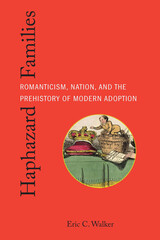
In 1845 Emerson delivered a series of lectures entitled "Uses of Great Men; Plato, or the Philosopher; Swedenborg, or the Mystic; Montaigne, or the Skeptic; Shakespeare, or the Poet; Napoleon, or the Man of the World; and Goethe, or the Writer." Emerson's approach to his great men stands in interesting contrast to that of his friend Carlyle in his Heroes and Hero Worship of 1841.
Although by 1845 Emerson had been lecturing for over ten years, Representative Men, published in 1850, was the first of his works to consist of his lectures as delivered, with only minima! revision and expansion. The book retains the immediacy of the spoken word, and the freedom and daring inspired by a live audience.
This critical edition is based on Emerson's holograph manuscript, which served as printer's copy for the first American edition, collated with subsequent editions and with Emerson's own corrections. The historical introduction relates the book to Emerson's life and times and discusses its literary origins, composition, and contemporary reception. A textual introduction and apparatus have been provided by the textual editor, and there are full informational notes. The volume has been awarded the seal of the Center for Scholarly Editions
Joseph Slater, General Editor
Douglas Emory Wilson, Textual Editor


The notable link between Ralph Waldo Emerson’s journals and his essays is formed by the lectures that reflected his developing views on issues of his time. This second volume of a welcome edition of the early lectures follows the earlier experimental series of lectures and presents the works of Emerson the now professional lecturer who revealed to his audience central ideas and themes which later crystallized into Essays, First Series.
“The Philosophy of History,” a series of 12 lectures, explores the nature of man in his society, past and present, and singles out the individual as the center of society and history. A second series of 10 lectures on “Human Culture” begins with the duty and the right of the individual to cultivate his powers and proceeds to consider various means by which this cultivation can be accomplished. The occasional “Address on Education,” which Emerson delivered between these two series, may be seen as a link between them.
Of the twenty-three lectures in this volume, only three have been previously published. The lectures have been reproduced from Emerson’s manuscripts, approximating as nearly as possible the original version read by the author to his audience.
READERS
Browse our collection.
PUBLISHERS
See BiblioVault's publisher services.
STUDENT SERVICES
Files for college accessibility offices.
UChicago Accessibility Resources
home | accessibility | search | about | contact us
BiblioVault ® 2001 - 2024
The University of Chicago Press









